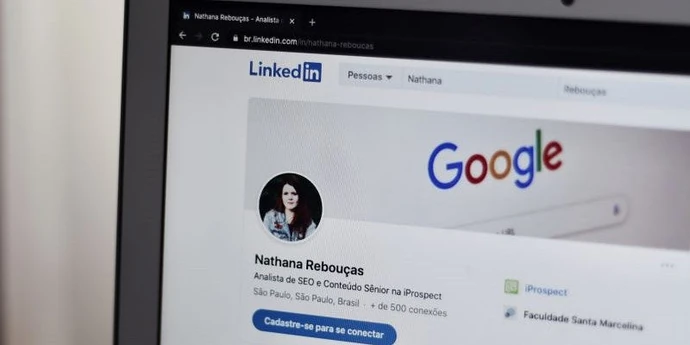If you're interviewing for a competitive role, there is a good chance you'll face the question: “Tell me about a time you handled a difficult stakeholder”. This question gives you a great opportunity to demonstrate key skills and traits such as problem-solving, adaptability and persuasiveness.
In this guide, we explain why interviewers ask this question and how you can ace it.
We’ll look some different example answers and we’ll explain how exactly you should prepare for this and other common interview questions:
- How to answer "Tell me about a time you handled a difficult stakeholder"
- What NOT to do
- Three example answers to "Tell me about a time you handled a difficult stakeholder"
- Practice answering common behavioral interview questions
Practice common interview questions 1-to-1 with top ex-interviewers
How to answer “Tell me about a time you handled a difficult stakeholder”
Okay, let’s see what interviewers are looking for and what you need to know in order to ace this question. We’ve distilled all of it into four key points.
#1 Consider categorizing difficult stakeholders
Difficult stakeholders often follow a certain type of behavior. Some people recommend categorizing these stakeholders and thinking of having specific approaches to each type.
For example, Michelle Bartonico, author or 'Stakeholder Engagement Essentials You Always Wanted To Know', has different approaches for "zombie stakeholders" (the ones that ignore everything until they sudddenly pop up just before the deadline) versus "astronaut stakeholders" (those who are great on the vision stuff but ignore the finer details).
Talking the interviewer through your approaches to a couple of different types of difficult stakeholders could be the basis of a compelling answer. You can read this interview with Michelle to learn more.
#2 Describe a structured approach
Another way of answering the question would be to describe a framework that you use when dealing with stakeholders. It could be something as simple as '1. Focus on goals 2. Clarify the decision maker 3. Know when to escalate."
By describing how you used a framework to tackle the situation, you show the interviewer not only that you're experienced in dealing with difficult stakeholders but also that you have a structured approach to problem-solving.
#3 Demonstrate active listening
The ability to listen properly to different stakeholders, especially when their needs seem to conflict with yours, is a key skill to have if you're in a leadership position. In your answer, be sure to detail the steps you took to listen and empathize with them.
#4 Show backbone
For competitive roles, interviewers love to see that you've got some "backbone". Amazon even includes "Have backbone: disagree and commit" as one of its leadership principles. So you may want to use an example where a key stakeholder disagreed with a strategy or an important action.
After all, any group of smart leaders will disagree at some point. Your interviewer will want to see that you know when to challenge ideas and escalate problems to more senior leadership if necessary. At the same time, they want to know that you can sense the right time to move forward regardless of your disagreement. Show that you’re capable of striking that balance.
#5 Use an answer framework
“Tell me about a time you dealt with/handled a difficult stakeholder" is a behavioral interview question. Behavioral questions are when the interviewer asks you about past experiences in order to assess whether you display the kind of behaviors they’re looking for.
Using an answer framework will help you structure your answers to behavioral questions. You’ll see that our “Tell me about a time you handled a difficult stakeholder” example answers below follow the SPSIL framework:
- Situation
- Problem
- Solution
- Impact
- Lessons
We recommend you use the SPSIL framework, as we believe it’s better than the more commonly-used STAR framework.
If you want to see why SPSIL is better, see our complete guide to behavioral interview questions.
What NOT to do
There are some very common pitfalls when answering "Tell me about a time you handled a difficult stakeholder", so make sure you avoid them.
#Don't say you've never had to deal with one
Even if this seems true, this is not a strong answer. Why not? Because the interviewer wants to hear how you aligned people behind a common goal, how you used empathy to change someone's attitude, or how you stood firm when you encountered behavior that went against the company's interests, etc.
By saying that you've never dealt with a difficult stakeholder, you're avoiding the question and passing up the chance to demonstrate your experience in this key aspect of leadership.
#Don't steamroll the stakeholder
While it's true that you can use this question as an opportunity to show backbone, ideally your example should be one where the difficult stakeholder was brought onside by your powers of persuasion. Perhaps you convinced them by showing them the data, or leveraging the support of other stakeholders. However you did it, it's a good opportunity to demonstrate your ability to lead and influence people.
It's less effective when your example shows you silencing the difficult stakeholder and steamrolling on without really getting them on board. There may be exceptions to this where the employer is actually looking for someone who is a bit of a "steamroller", but generally you're better advised to demonstrate a more collaborative and empathetic approach to leadership.
"Show balance. Avoid responses that make it seem like you compromised too much or ignored the stakeholder entirely," says Alexandre, ex-interviewer at Deutsche Bank. "Try to end with a positive outcome. Conclude with a win-win resolution that benefited both the stakeholder and the project."
#Don't badmouth anyone
If your example contains conflict, avoid putting all the blame on the stakeholder. It's a negative experience for the interviewer to listen to you complaining about another person and doesn't reflect very well on you - they want to hire someone who will bring out the best in people, not the worst.
Your answer will be much stronger if you can keep a positive focus in your answer and demonstrate empathy and self-reflection.
#Don't focus too much on the problem
Some candidates spend too long describing the situation and the difficulties they were having with the stakeholder, instead of focusing on the most important part of the answer, ie what they did to solve the problem.
"Don’t focus too much on the challenges, but rather on the actions you took to address them and the positive outcome." Alexandre.
3 example answers to “Tell me about a time you dealt with a difficult stakeholder"
With the points we’ve covered above, you should be ready to start preparing your answer.
So you can see what to aim for, we’ve created three strong example answers.
#1 “Tell me about a time you dealt with a difficult stakeholder” (management candiadte)
Example answer: difficult internal stakeholder
(Situation)
"In a previous role, we were in the midst of a critical project and the CMO came in wanting significant changes to the user interface just a few weeks before the scheduled release.
(Problem)
These changes were substantial and would require a significant amount of development time, potentially delaying the project. Additionally, these alterations contradicted the initial requirements and design that had been agreed upon after extensive discussions and planning.
(Solution)
When trying to align stakeholders, I tend to follow a framework of Engage, Negotiate, Confirm.
So, first I Engaged: I organized a meeting with the CMO, the project managers, and the development team. During the meeting, I attentively listened to the stakeholder's requirements and concerns, ensuring they felt heard and understood.
I then started the Negotiation phase: I presented a detailed analysis of the potential impact of these changes on the project timeline and the alignment with the agreed-upon project goals.
I proposed a compromise where we could integrate a small portion of the requested changes in the current release while planning for a subsequent update to fully implement the rest. This way, we could meet the marketing department's immediate needs without jeopardizing the project timeline.
After a thorough discussion and negotiation, we reached an agreement to proceed with the compromise. To Confirm, I outlined the points agreed in an email to everyone after the meeting to make sure there were no misunderstandings.
(Impact)
The CMO appreciated the team's dedication to finding a middle ground and prioritizing project goals. We were able to complete the project within the deadline while maintaining our good relationship with the marketing team.
(Lessons)
This was a really useful experience for me, as it taught me how important negotiation can be when trying to lead a big project that affects various teams. I also realised how important it is to listen properly to people who disagree with you - at first I'd thought the CMO's requests were totally unecessary but when I took the extra time to really understand her perspective, I could see they some sense.
I also learned that when you agree something verbally in a meeting, share it in written form afterwards, because people tend to have contrasting memories of what was agreed!"
Notice that the candidate explains the situation and problem extremely concisely, allowing them to focus on explaining the solutions they enacted and the lessons they learned from the experience.
#2 “Tell me about a time you dealt with a difficult stakeholder" (junior-mid candidate)
Example answer: changing brief
(Situation and Problem)
"Recently I faced a situation where an internal stakeholder who was my superior, a product manager from another team, posed a challenge. The PM had initially signed off on a set of project requirements, but as I progressed with the project, he started requesting numerous modifications that deviated significantly from the agreed-upon scope.
(Solution)
To address this, I scheduled a meeting to understand his new requirements thoroughly. During the discussion, I carefully listened to his concerns, gathering insights into the reasons behind the sudden change in requirements. It became clear that he had received feedback from some potential clients, prompting the alterations.
It was clear to me that we shouldn't be altering a well-planned project on our Roadmap in order to accomodate anecdotal feedback from a few potential clients. On the inside, I was actually a bit angry with his lack of consideration, but I made sure to go into the meeting with a very positive attitude. After all, the PM was in a much more senior position than me.
I showed the PM the original requirements he'd given me and I explained how the new changes would cost me more time. I said that I really liked the idea of adapting aspects of the project based on feedback from customers, but that perhaps it was worth doing some more extensive User Research rather than just talking to a few potential clients. The PM quickly saw that this made sense.
(Impact)
We agreed to stick to the original requirements for now, but to set up a meeting with my engineering manager to discuss adding a User Research project to the roadmap in the next quarter and provide engineering resources to respond to its findings.
I was able to continue the project as planned and we completed ahead of deadline.
(Lessons)
This experience taught me 1) Before starting a project, always make sure that requirements are written down in a document and agreed upon by all necessary parties. 2) There is always a positive way to frame the most difficult conversations, and doing this gives you a greater chance of a positive outcome."
#3 “Tell me about a time you handled a difficult stakeholder” (management-level candidate)
Example answer:
(Situation)
"In a previous role I had to deal with a client who was extremely demanding and very difficult to satisfy. His company had been a very important account for us and so he was used to getting everything he asked for. However, it was no longer profitable to employ so many resources on this account.
(Problem)
When I took over the team, I found that some of them were suffering from stress and anxiety because of this client. He would even call them outside office hours to chase up work. Furthermore, he gave constantly negative feedback.
(Solution)
I realized that this client needed his expectations managed, and clear boundaries set. First of all, I spoke to our director and convinced her that we had to be prepared to lose this client if we were unable to improve the situation. With the director on board, I then spoke to the team and explained that I wanted to change the way we worked with the client, but I needed their help.
Together we worked extra hours to create a 20-page presentation that clearly outlined our way of working and what the client could expect from us. I then presented it to him in person. I explained the specific steps I was taking to improve the quality of our work for him, but that some things were simply out of scope. I also insisted that I was his only contact point with the team.
(Impact)
Gradually, the relationship with the client improved. He became more reasonable in his demands and the quality of the team’s work improved, as they were no longer being motivated by stress and fear. Three months later, this account was taking up 30% less hours of work than it was previously.
(Lessons)
I learned the importance of setting very clear deliverables and boundaries with clients and other stakeholders. I like to say that we try to over-deliver, not over-promise. I also learned that my team is my most important resource, and anything that worsens their motivation and wellbeing must be solved immediately."
This is a strong answer as it not only demonstrates an ability to tackle difficult stakeholders, but also shows great people managment skills as the candidate takes strong action to protect the wellbeing and motivation of their team.
Practice answering common behavioral interview questions
We've coached more than 15,000 people for interviews since 2018. There are essentially three activities you can do to practice for interviews. Here’s what we've learned about each of them.
Practice by yourself
The information above should have you well on the way to crafting a great answer to “Tell me about a time you handled a difficult stakeholder”. You should be able to tell your story naturally, neither missing key details nor memorizing them word-for-word. Do the same for the other common behavioral interview questions.
Of course, by yourself you can’t simulate thinking on your feet or the pressure of performing in front of a stranger. Plus, there are no unexpected follow-up questions and no feedback.
That’s why many candidates try to practice with friends or peers.
Practice with peers
If you have friends or peers who can do mock interviews with you, that's an option worth trying. It’s free, but be warned, you may come up against the following problems:
- It’s hard to know if the feedback you get is accurate
- They’re unlikely to have insider knowledge of interviews at your target company
- On peer platforms, people often waste your time by not showing up
For those reasons, many candidates skip peer mock interviews and go straight to mock interviews with an expert.
Practice with experienced interviewers
In our experience, practicing real interviews with experts who can give you company-specific feedback makes a huge difference.
Find an interview coach so you can:
- Test yourself under real interview conditions
- Get accurate feedback from a real expert
- Build your confidence
- Get company-specific insights
- Learn how to tell the right stories, better.
- Save time by focusing your preparation
Landing a job at a big tech company often results in a $50,000 per year or more increase in total compensation. In our experience, three or four coaching sessions worth ~$500 make a significant difference in your ability to land the job. That’s an ROI of 100x!
Click here to book behavioral mock interviews with experienced interviewers















